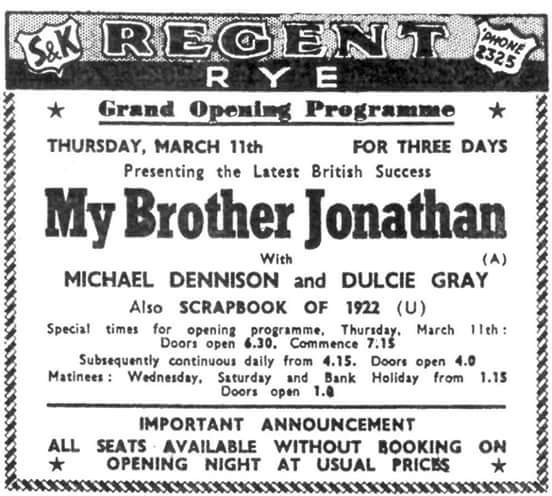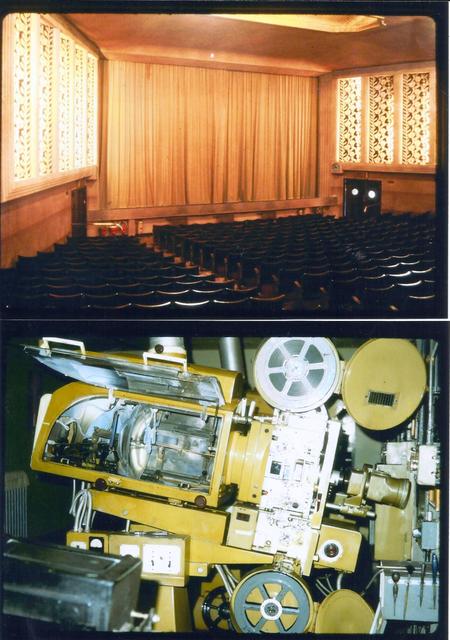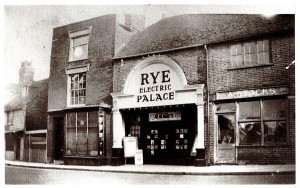During my teenage years our summer holidays were spent working on my uncle’s farm in Cornwall. One of our leisure treats was a weekly visit to the Picture House in nearby Bude – a Shipman & King enterprise – and the story of this extensive chain has now been collated in a new book by the grand-daughter of one of the founders.
Across the nation, customers thrilled at the antics of the new ‘silent’ stars. Rye was no different and had its first pictures screened from November 1910. It was set up by the enterprising landlord of the Cinque Ports Arms public house who converted the adjacent Assembly Rooms into the Bijou Flicker Palace. This was superseded in 1911 by another screen in Landgate, the Rye Electric Picture Palace, which was taken over in 1923 by the enterprising company led by Alfred and Sam, Shipman & King. Both owners described themselves as Jewish musicians, with Alfred living in nearby Hastings and associated with two of the town’s early cinemas.

The company bought and closed down both of Rye’s existing cinemas to make way for their new enterprise on Cinque Ports Street. It took 21 weeks to build and opened on Wednesday October 5, 1932. The Regent was certainly a ‘super’ cinema with an ornate auditorium and big audio speakers for the latest talking pictures. The cinema seated 671 and was an instant success, opening with Jack’s The Boy (featuring the song, ‘The Flies Crawled Up The Window’) supported by a Laurel & Hardy comedy One Good Turn.
The 1930s was a boom time for ‘talking pictures’ with audiences increasing each year. And cinema-going during the war was a vital diversion for the population but on Tuesday morning September 22, 1942, five German planes crossed the Channel and a bomb destroyed the decade old Regent cinema. Shipman & King then swiftly reopened their Electric Palace and continued to entertain the town through the war years.

By the late ’40s the Regent had been rebuilt with 744 seats and entered its second phase from Thursday March 11, 1948. However, this coincided with a general downturn in cinema going. Initially, the post war baby boom kept parents at home, but then the introduction of BBC television in London from 1948 and later ITV from 1955 led to a rapid decline in attendances. Southern Television from Southampton, housed in an old cinema, began transmissions on 30 August 1958, and two years later a new powerful TV mast at Dover increased coverage to East Sussex and Kent.
Rye’s Regent was eventually taken over by the Grade Organisation in April 1966, with EMI taking control three years later. Sadly, with dwindling audiences, the inevitable closure for the Regent came on Saturday September 29, 1973, with its final film believed to be The Wild Bunch. The Council purchased the site for £30,000 in 1978 and it was eventually sold to an Iden developer for £62,500. The name Regent Square recalls the old cinema site. 42 years after the closure of the Regent, the 2015 Kino came to town, and with perfect film curation, has become yet another chapter in the remarkable history of Rye cinemas.
The book launch of ‘CINEMA KING’, written by Sam King’s grand-daughter Jennifer King, takes place on Saturday April 29, appropriately at the Hailsham Pavilion, the first purpose-built cinema of the eventual Shipman & King chain.
My thanks to staff at Rye Library for enthusiastic assistance with research.
Image Credits: Courtesy of Rye Library .



